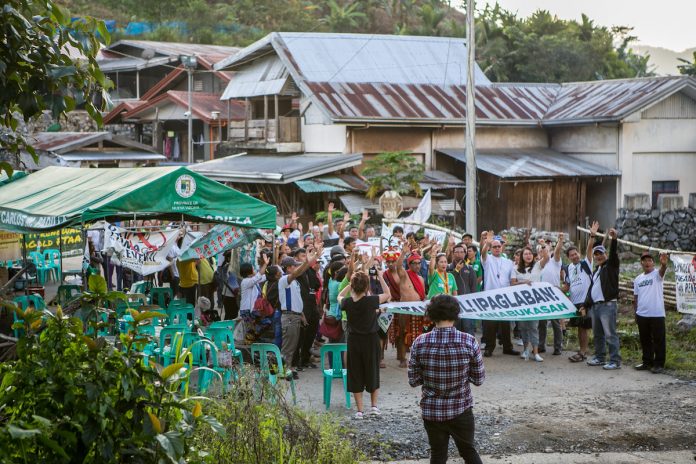Pro-environment groups scored a victory against mining on Oct. 16 when an Australian-Canadian mining company announced that it has suspended production in the northern part of the Philippines.
OceanaGold Corporation, which operates a gold and copper mine in Didipio village in Nueva Vizcaya province announced that it will “lower output” from the mines following the suspension.
“We have no choice but to temporarily suspend production at Didipio,” Mick Wilkes, OceanaGold president and CEO, was quoted in news reports.
He said the suspension came even as efforts to finalize renewal of a financial or technical assistance agreement (FTAA) are ongoing.
An FTAA is a contract between a foreign-owned corporation and the government for the large-scale exploration, development, and utilization of minerals.
In September, the mining company appealed a court decision denying the company’s request to end an “unlawful restraint of operations” by the local government and residents of the village.
Governor Carlos Padilla of Nueva Vizcaya demanded the immediate cancellation of the mining company’s 25-year contract, which the governor described as causing “too much destruction.”
“This issue created political and social division and increased crime incidence in the region. The mine operations contaminated the watershed,” claimed the governor.
“What has been destroyed by mining could not be repaired,” he added.
Early this year, the mining company’s contract has expired but the Philippines’ Mines and Geosciences Bureau issued a temporary license to operate.
The bureau’s order to allow the mining firm to continue operations prompted residents and pro-environment groups to set up barricades and block access to the mines.

Bishop Jose Elmer Mangalinao of Bayombong lauded the efforts of the community to protect the province from further destruction due to large-scale mining operations.
“This speaks of the strength of communities in facing hardships,” said the prelate, adding that with Pope Francis’ encyclical on the environment “we are more serious and upfront on our actions to protect our common home.”
The bishop said his diocese will continue to support the fight of the community and the local government “against the destructive extraction project that affects all of creation.”
Father Edwin Gariguez, executive secretary of the social action secretariat of the Philippine bishops’ conference, said mining is “contrary to the essence of Laudato Si.”
The priest maintained that there is no such thing as responsible mining. “Mining violates the economic rights of the people. It violates the right to life of all living things,” he said.
“We must never allow another 25 years’ worth of damage to the environment and violations to human rights,” said Jaybee Garganera of the group Anti-Mining Alliance.
He said the resistance of residents to mining “shows the trauma they experienced from the destructive effects of the mine.”
Leon Dulce of Kalikasan People’s Network for the Environment said the suspension of the mining company’s operation “is a hard-fought victory for the people.”
Dulce called on Philippine President Rodrigo Duterte to reject OceanaGold’s application for the renewal “with finality.”
OceanaGold’s suspension of the Didipio mine is only temporary until the company’s application for a license renewal is not rejected or scrapped by the Office of the President.
He also urged the government to return the “mineralized lands to the indigenous communities who rightfully own the land.”
OceanaGold produces up to 550,000 ounces of gold and 15,000 metric tons of copper yearly from its four mine sites in Didipio in the Philippines, Haile in the United States, and Macraes and Waihi in New Zealand.









